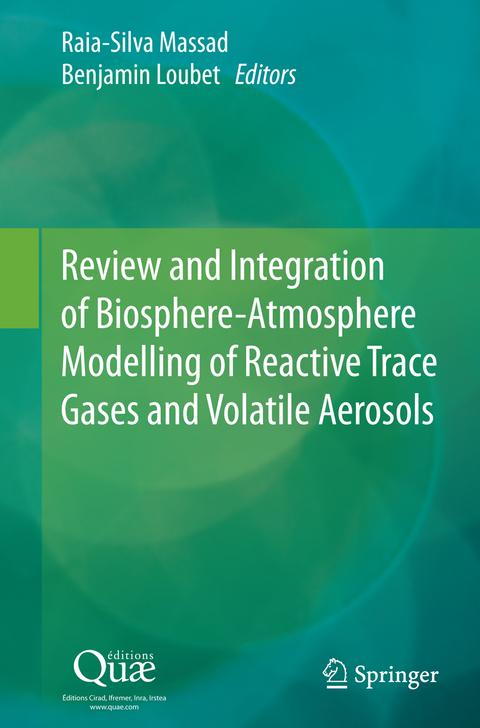
Review and Integration of Biosphere-Atmosphere Modelling of Reactive Trace Gases and Volatile Aerosols
Springer (Verlag)
978-94-024-0423-4 (ISBN)
Introduction.- Organisation and structure of the workshop.- Section I: Review documents.- Advances in understanding, models and parameterisations of biosphere-atmosphere ammonia exchange.- Modelling atmosphere-biosphere exchange of Ozone and Nitrogen oxides.- Bidirectional exchange of volatile organic compounds.- Surface / atmosphere exchange of atmospheric acids and aerosols, including the effect and model treatment of chemical interactions.- Section II: Synthesis according to compounds.- Modelling the air-surface exchange of ammonia from the field to global scale.- O3 and NOx exchange.- Bi-directional exchange of volatile organic compounds.- Aerosol and Acid Gases.- Section III: Synthesis according to model component.- Gaseous stomatal exchange and relation to ecosystem functioning.- Impact of leaf surface and in-canopy air chemistry on the ecosystem/atmosphere exchange of atmospheric pollutants.- Soil and litter exchange of reactive trace gases.- In-canopy turbulence - State of the art and potential improvements.- A common conceptual modelling framework for reactive trace gases and volatile aerosols atmosphere-biosphere exchange in chemical transport models.- General model requirements.- The ideal model for each compound.- Ammonia.- Nitrogen oxides and ozone.- Aerosol and acid gases.- Volatile organic compounds (VOC).- Emerging common features in the modelling framework.- Acknowledgements.
| Erscheint lt. Verlag | 23.10.2016 |
|---|---|
| Zusatzinfo | 18 Illustrations, color; 8 Illustrations, black and white; IX, 235 p. 26 illus., 18 illus. in color. |
| Verlagsort | Dordrecht |
| Sprache | englisch |
| Maße | 155 x 235 mm |
| Themenwelt | Naturwissenschaften ► Biologie ► Ökologie / Naturschutz |
| Naturwissenschaften ► Geowissenschaften ► Geografie / Kartografie | |
| Naturwissenschaften ► Geowissenschaften ► Geologie | |
| Naturwissenschaften ► Geowissenschaften ► Meteorologie / Klimatologie | |
| Technik ► Umwelttechnik / Biotechnologie | |
| Schlagworte | Air Pollution • biosphere-atmosphere interaction • Climate Change Impact • gas and volatile aerosols • Terrestrial Ecosystems |
| ISBN-10 | 94-024-0423-6 / 9402404236 |
| ISBN-13 | 978-94-024-0423-4 / 9789402404234 |
| Zustand | Neuware |
| Haben Sie eine Frage zum Produkt? |
aus dem Bereich


